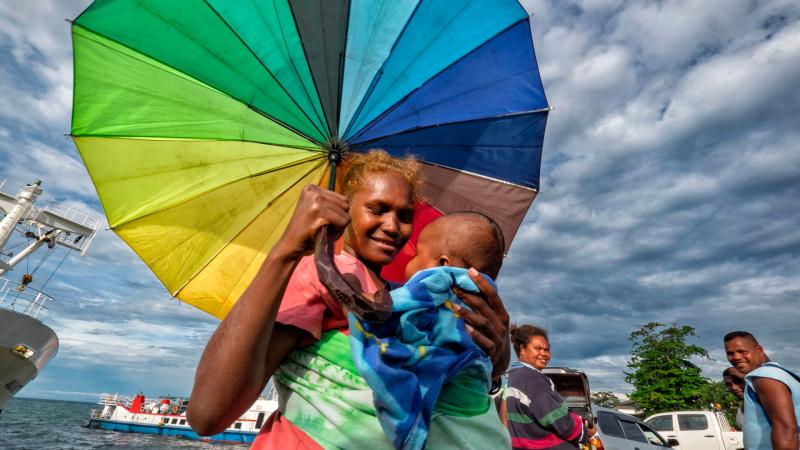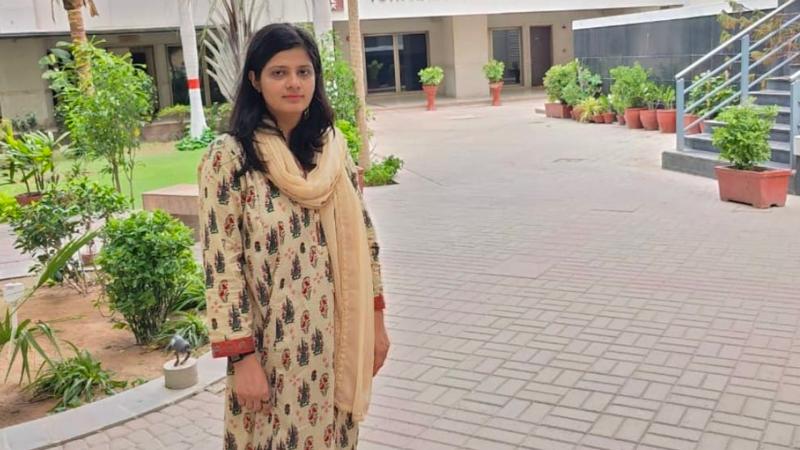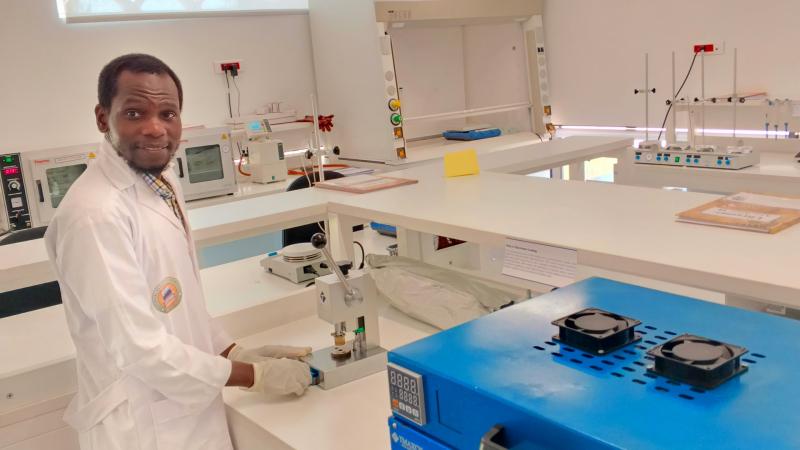The United Nations Day for South-South Cooperation, focuses on how solidarity and collaboration among peoples and countries of the South can contribute to nations' efforts to meet their development goals.
"South-South partnerships – along with triangular cooperation – are crucial to building a better future for all. These partnerships can advance a fairer, more inclusive global financial system that responds to the challenges faced by developing countries. They can help unlock the power of digitalization, data, and science-backed solutions for sustainable development," said UN Secretary-General António Guterres in his 2024 message.
This years' theme 'A Better Tomorrow with South-South Cooperation' echoes the vision of TWAS’s founder and first president, Nobel Laureate Abdus Salam. "The South-South Fellowship Programme is important because it contributes to the strengthening and to the cohesion of the scientific community in the Third World," he wrote in the 2013 TWAS book South-South Fellowship Programmes - Summary of Visits.

TWAS launched its first South-South cooperation programme in scientific research and training in 1986. More than 2,400 scholars had accepted PhD opportunities from TWAS and a total of 1,150 participants were confirmed to have graduated.
"The PhD title I earned through this programme has been pivotal in my professional development, empowering me to undertake significant research projects that have addressed critical challenges in my field," said Pakistani physical chemist Hamsa Noreen, who earned her PhD in 2020 thanks to a TWAS-CNPq fellowship. After the fellowship, she secured a professional opportunity which ultimately led to her current position as a programme and data analyst at the World Health Organization in Pakistan.
"The knowledge and experience I gained during my fellowship enabled me to work within the UN system, an opportunity that would not have been possible without TWAS's support,” she said. “I believe that these contributions have had a meaningful impact also on my country, and I am eager to continue building on this work in the future."
Nurturing future generations of scientists
In response to the skills scientists in developing countries need to keep pace with a rapidly changing world, TWAS has recently launched two new South-South programmes.
In partnership with the São Paulo Research Foundation (FAPESP), the Academy will provide 20 fellowships per year to scientists from Least Developed Countries (LDCs) for postdoctoral research in Brazil, in natural, applied, and social sciences.
The Lahore University of Management Sciences in Pakistan and TWAS jointly offer a five-year programme to young students from developing countries other than Pakistan who wish to pursue research towards a PhD in natural sciences and engineering.
Bridging South-South gaps
The Italian Government through its Ministry of Foreign Affairs and International Cooperation (MAECI) has always played a relevant role in the Academy's life, providing financial support to establish mobility programmes for research visits.
Supported by the Italian Government and in partnership with CONICET, the TWAS-UNESCO Associateship Scheme was launched in 1994 to counter the brain drain of developing countries. During a three-year appointment, accomplished scientists from the global South may pay two visits, each of 2–3 months, to centres of excellence in the South.
Initially, 11 CONICET centres joined the initiative as host hubs. After a 2013 formal agreement between TWAS and CONICET, and during the following years, the programme has grown to include 300 centres, 175 of which in Argentina, and 125 in other developing countries. Between 1994 and 2022, over 350 scientists traveled to institutions in the global South through this programme.

Both the TWAS Visiting Expert programme (launched in 2003) and the TWAS Research Professors in LDCs (launched in 2005 for TWAS Fellows, Young Affiliates, and Alumni) allow experienced scientists in the TWAS network to visit countries for 2–4 weeks to help fill knowledge gaps. They help institutions and research groups in the global South with limited outside contacts to initiate long-term partnerships with scientific leaders. To date, 143 scholars have been invited to 58 countries as visiting experts, and 24 TWAS members have been appointed as research professors in LDCs.
South-South collaborations are also offered by the TWAS Fellowships for Research and Advanced Training programme. Promising early-career scientists from a developing country may select another institute in the global South and spend 3–12 months there, to acquire new skills and build for long-lasting collaborations. Since 2002, TWAS has awarded 292 of these fellowships.
The climate crisis and gender issues
Developing countries are particularly vulnerable to the adverse effects of climate change. TWAS and its partners offer two programmes to help raise a new generation of climate experts in the South, and empower women scientists from developing countries on climate issues.
The TWAS-Sida PhD Scholarships for Climate Research for Students from LDCs is open to young MSc students with a background in climate, and aims to contain the flight of human capital from the South in the field of climate change. Jointly run with TWAS’s historical partner Sida, it offers a high-level portfolio of host supervisors and climate experts, and the opportunity to get closer to IPCC scientists and the mechanism underneath the IPCC assessment reports. Since 2022, TWAS has awarded 13 of these scholarships.
TWAS ensures women scientists are taken into account when designing new programmes, as well as when evaluating applications from women scientists. Additionally, some of its programmes are specifically tailored to women in science.
For instance, the TWAS-Elsevier Foundation Project Grants for Gender Equity and Climate Action was established in 2021 in partnership with The Elsevier Foundation. It aims to support women's well-being through the capacity-building of female scientists and respond to the causes and consequences of climate change with action-based projects.
Teams must include as a principal applicant a woman from a TWAS-identified Science and Technology-Lagging Country, holding a PhD, and up to four co-applicants from any developing country. This programme already awarded 15 teams, composed of researchers from 15 different countries, including Benin, Bolivia, Ghana, Mozambique, and Zimbabwe. One team featured the principal investigator from Lebanon, with co-participants from Guatemala.
Reinforcing intra-African ties
Young African scientists from LDCs who want to get established in their country often face challenges due to a lack of expertise, equipment, and consumables. Therefore, research grants are essential.
To close this gap, offer the chance to learn new skills, and build links with the private sector, in 2021 TWAS and the German Federal Ministry of Education and Research have launched the Seed Grant for New African Principal Investigators (SG-NAPI) programme.
Worth a total of US$ 6 million across seven years, SG-NAPI fosters the creation of intra-African collaborations, in particular among a selected group of countries, as well as South-North collaborations. Since 2021, SG-NAPI has awarded 97 fellowships to scientists from 25 African countries including Djibouti, Ethiopia, Malawi, and Uganda. Among these, 23 fellowships specifically support South-South collaborations.
For instance, Nigerian chemist Mustapha Balarabe Idris visited Morocco for two weeks. "The fellowship has provided me with an opportunity to present my research output at a conference and participate in research about lithium-ion batteries at Mohammed VI Polytechnic University in Morocco," he said.

Successful South-South initiatives
The TWAS Research Grants Programme for Interdisciplinary Research: Collaborative Grants supports projects jointly carried out by two principal investigators in the developing world. This Sida-supported scheme connects one male and one female scientist from the South, at least one from a TWAS-identified Science-and-Technology-Lagging Countries, and one from an LDC, with expertise in different fields. Since it was launched in 2022, the programme has assigned four collaborative grants to scientists from six countries.
Building a career in science goes also through attending conferences and creating professional bonds.
In partnership with Sida and across a decade (2013–2022), TWAS has supported more than 40 scientists from the developing world, allowing them to participate in conferences in another developing country: from Bangladesh to Nepal, Cameroon to Senegal, and from Mali to Tanzania, to name a few.
South-South collaborations may also arise online. The TWAS Research Links network, a platform launched in 2020 that serves as a friendly venue to share knowledge and experiences, connects almost 500 active scientists from more than 30 countries.
Young partnerships on the go
With more than 400 members from over 85 countries, the TWAS Young Affiliates Network (TYAN) is a dynamic branch of TWAS that fosters international collaboration.
The TYAN Collaborative Grant Award (TCGA) devised to boost scientific South-South, and North-South collaborations, is a good example. From 2018–2024, TCGA has funded 25 proposals for scientists to establish collaborations between Argentina and Colombia, Benin and Lebanon, Congo and The Philippines, Kenya and Uganda, Lebanon and Brazil, Mauritus and South Africa, Tunisia and Egypt, Uzbekistan and South Africa, Venezuela and Argentina.
Nine editions of the TYAN International Thematic Workshops (2018–2022) connected 70 scientific leaders, mostly from developing countries, with more than 1500 participants in person and 15,000 online, who shared topics relevant to nations in the global South.
The first edition of TYAN Summer School, held in the Plurinational State of Bolivia in March 2023, attracted 120 students from across the country. Instructors from Argentina, Bolivia, Brazil, Costa Rica, and Ecuador provided hands-on training in key areas of the chemical and biological sciences.
Cristina Serra

